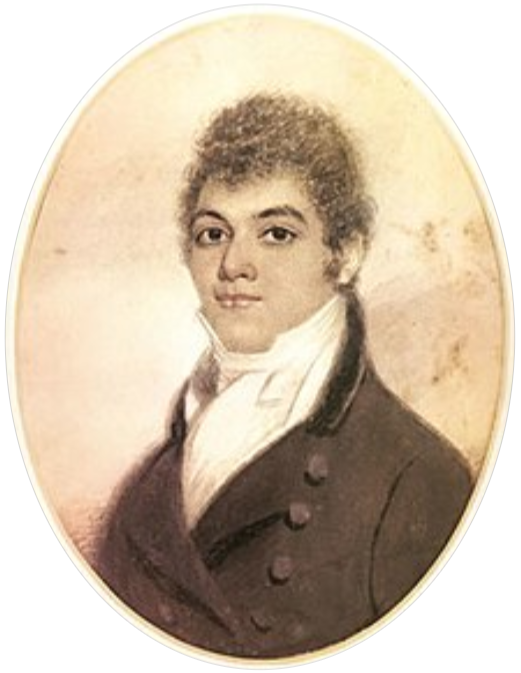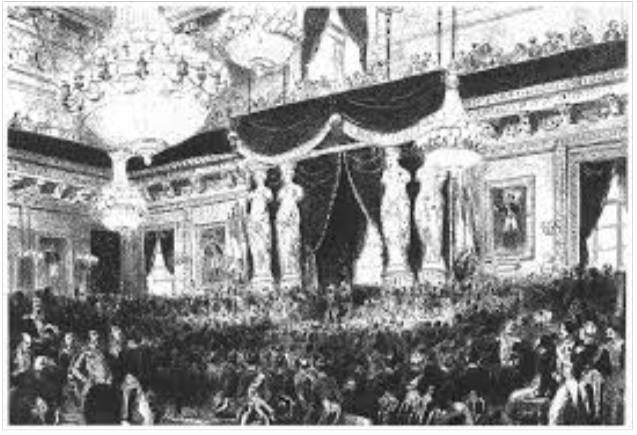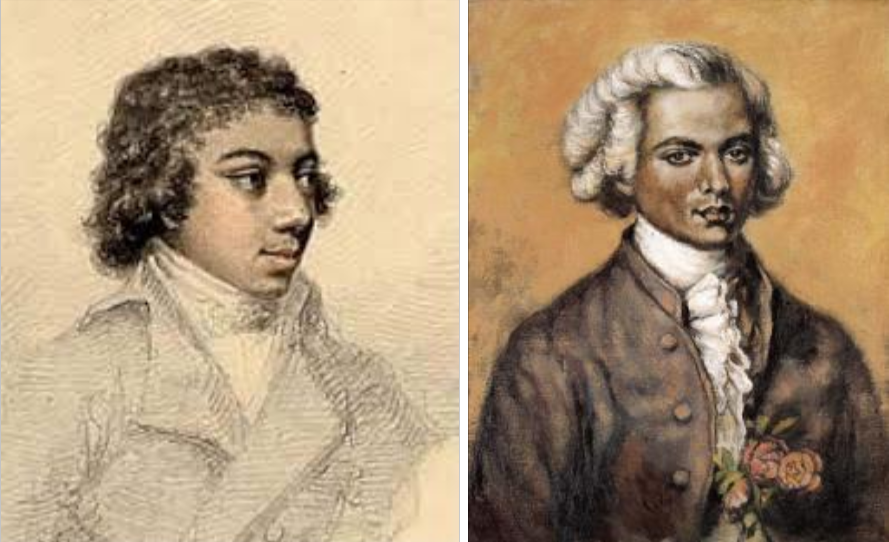|
‘Virtuoso’ is the Language of Great Musicians; ‘Black’ is not His Name Part III: WeWrite to Rewrite & Re-right History by Kristen Adams When classical music began trending among higher classes, the arts community welcomed the new music sector. While music is a powerful force in bringing community together, it further distanced elites (who added classical music and composers to their required “cultured” discourse) from commoners (unable to access the sphere). Classical music was not solely a topic of conversation between the elite audience. It provoked a wordless conversation amongst the composer, performer, and listener whose language traversed temporal, physical, political, and psychological boundaries defining the elite culture. One writer writes notes, there are two distinct ways of attending to sound: one that focuses on the thereness of the sound, on the sound-producer; and one that focuses on the hereness of the sound, on the physiological and psychological effects of sound on the listener”. With 2020 still feeling fresh, we start the decade building upon the foundations of excellence, creativity, and passion that Black composers before us also embraced. Their lives show a different story of a Black man during slavery, and their achievements demonstrate how a community can be enhanced in the absence of racial exclusion. In a society that created a label, “African-American music” to define our creativity as the beautiful Blues, R&B, Caribbean, Afro-beats and Rap styles, the reality is that there is no limit to music Black people create. Joseph Bologne, Chevalier de Saint-Georges was not the only violinist whose legacy is clouded by the shadow of a white counterpart. George Augustus Polgreen Bridgetower was a virtuoso whose birth is estimated to have been on February 29, 1780 from a Polish mother and Caribbean father. He had a younger brother, Fredrick, who was also a very talented cellist. During George Bridgetower’s time, he was considered “the African Prince”. While characterizing African with prince is a positive representation of the often misrepresented continent and its people, it was an exoticization of his talent and ethnicity, given that he was born in Poland and was not recorded to have had any ties to a kingdom. However, this does speak to notions of identity that seem foreign to North America but innate in Europe and other parts of the world: nationality by blood, an increasingly disputed reality for its political and human rights ramifications. Bridgetower made his professional debut at the Concert Spirituel (one of the first public concert series in Europe) in Paris in April 1789 at the young age of nine years old, when he played a violin concerto by Giovanni Giornovichi. Despite his early start of exceptionalism, his accomplishments are more difficult to find in writings. Instead, the paper trail of his legacy is dominated by his fall from grace with Ludwig van Beethoven. Considering him a good friend and talented virtuoso, Beethoven dedicated his Sonata for Violin and Piano No. 9 in A Major, Op. 47 to Bridgetower, inscribing the following (translated): Mulatto sonata composed for the mulatto Bridgetower, great fool and mulatto composer’. They performed its debut together in Vienna in 1803. However, after a dispute, Beethoven decided to dedicate the piece to Rodolphe Kreutzer, a man he never met whose own response to this parallels the rewards so easily granted to white men with less credentials than their highly accomplished POC counterparts. Though we all call it the Kreutzer Sonata, Kreutzer never played the piece, saying that Beethoven did not understand how the violin worked, making the piece unplayable. If you listen to the sonata, you may notice how the harmonies hold the tensions, intensity, command, determination, righteousness, shiftiness, emotional vigor and dialogue between the violin and piano that colored the end of their friendship and Beethoven’s decision to alter his dedication. While this truth is fascinating, Bridgetower’s life is more than this phase. Bridgetower was a violinist and composer who was considered a “child prodigy, a crown favorite, a master violinist, and a respected teacher”. After one of his performances, a newspaper circulating during his time remarked, “[George Bridgetower] had a more crowded and splendid concert on Sunday morning than has ever been known in this place. There were upwards of 550 persons present, and they were gratified by such skills on the violin as created general astonishment, as well as pleasure from the boy wonder. The father was in the gallery, and so affected by the applause bestowed on his son, that tears of pleasure and gratitude flowed in profusion." His father attended many of his performances and supported him when they traveled to Windsor to begin what would be a lifelong tour around Europe when Bridgetower decided to make a living performing. While he was elected to the Royal Society of Musicians on October 4, 1807, he also earned a Bachelors of Music from Trinity Hall in 1811. He would also hold the position of concert master in the Prince of Wales’s private orchestra for 14 years. Bridgetower is not recorded to have had tense relations with his contemporaries, but was welcomed and enjoyed friends and mutual mentorships. Several of his compositions have survived over the passing time, but very few are recorded. For those wanting to read more about Bridgetower, Rita Dove wrote a book about him entitled Sonata Mullatica; A Life in Five Movements and a Short Play. Both Joseph Bologne, Chevalier de Saint-Georges and George Augustus Polgreen Bridgetower created lives that gave them meaning, followed their passions, and integrated spaces that some may believe are just starting to be integrated in the 21st century. Their stories inspire and push us to demand more recognition and inclusivity in the classical world as we ask you to embrace your own passions.
What gives your life meaning? How will you make an impact? We love music because we love its sound, we love its feeling, we love its inventiveness, and commend those who dare to break the silence. We are all creators of our lives and of history. ‘Virtuoso’ is the language of great musicians. You hold the key to your greatness. “We die. That may be the meaning of life. But we do language. That may be the measure of our lives.” – Toni Morrison
2 Comments
8/20/2020 05:17:50 am
Please see the new book The Bridgetower Chronicles
Reply
Kristen Adams
4/29/2022 10:20:43 am
Thank you for sharing, the book sounds great!
Reply
Leave a Reply. |
Details
Writings, musings, photos, links, and videos about Black Artistry of ALL varieties!
Feel free to drop a comment or suggestion for posts! Archives
May 2024
|
Member Login
Black concert series and educational programs in Boston and beyond




 RSS Feed
RSS Feed










